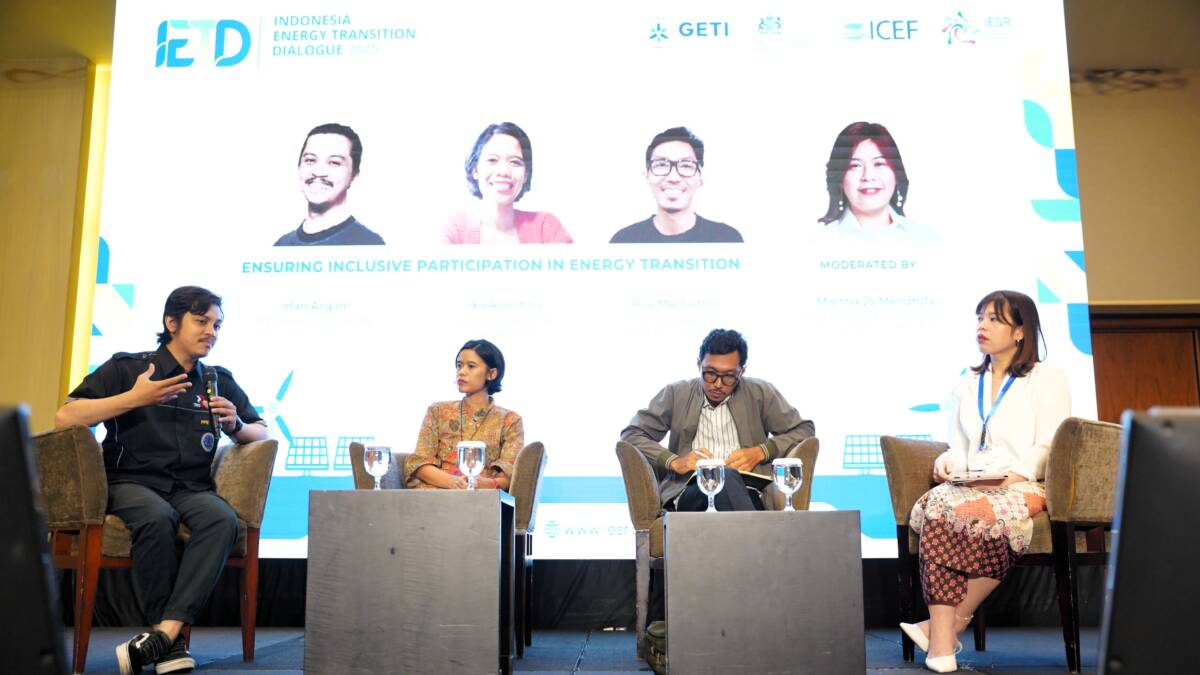Jakarta, October 13, 2025 – A just and inclusive energy transition in Indonesia is a crucial step to ensure that the transformation to clean energy sources not only reduces environmental impacts but also addresses the social and economic needs of the community, especially the vulnerable. By exploring the abundant potential of renewable energy sources, such as solar, wind, and geothermal energy, Indonesia has the opportunity to create new jobs, reduce dependence on fossil fuels, and improve public welfare. However, to achieve this, appropriate policies are essential so that all levels of society, both in cities and remote areas, can access and enjoy the benefits of this transition without being left behind.
Irfan Asgani, from the Research and International Relations Division of the Mining and Energy Federation of the Confederation of All Indonesian Trade Unions (FPE KSBSI), explained that the energy transition is not new to his organization, as he has received information regarding the coal phase-out plan since 2018, which has made it one of his organization’s national priorities. However, Irfan highlighted that from the workers’ perspective, the energy transition is seen as a top-down approach, where the discussion is dominated by technocrats and the government.
“Often forgotten in this process is the goal of realizing a just and inclusive energy transition, using the slogan “leave no one behind.” However, in reality, there are still groups left behind, such as workers, who are rarely involved in discussions in the policy-making process,” Irfan said on the second day of the Indonesia Energy Transition Dialogue (IETD) 2025, organized by the Institute for Essential Services Reform (IESR) on Tuesday (October 7).
Meanwhile, Ika Agustina, Executive Director of the Kalyanamitra Foundation, explained that her organization does not specifically provide direct support to communities, but rather focuses on exploring women’s knowledge and experiences so that their stories and aspirations can serve as a reference for decision-making. When disseminating research results, everything found serves as a basis for reference for the government in decision-making.
“There are various good practices already being implemented at the community level. For example, female heads of households (RT) in East Nusa Tenggara (NTT), with government support, have successfully encouraged the development of biogas and solar panels. Initiatives like these deserve wider recognition and support, not only from local governments but also from the private sector,” said Ika.
On the other hand, Roy Murthado, a young leader of Nahdlatul Ulama, criticized government actions that appear to lack commitment to a more sustainable energy transition. In fact, he argued, some actions contradict the spirit of the energy transition, such as the government’s policy of transferring coal management to religious organizations. This could potentially create new problems that could exacerbate environmental damage.
Furthermore, Roy highlighted the case in Halmahera, where 11 indigenous people were charged under three different articles for opposing a nickel project entering their territory. In fact, the residents were merely trying to protect their gardens from a project they disagreed with. This incident adds to the long list of injustices often experienced by indigenous peoples fighting to defend their rights to land and the environment.
Under these conditions, the role of civil society in the energy transition process and environmental policy is crucial. The power of civil society, often a neglected voice, is an indispensable element in achieving a just and sustainable energy transition. Without the active involvement of civil society, the energy transition, which should benefit all levels of society, could become even more unequal and favor certain groups.

